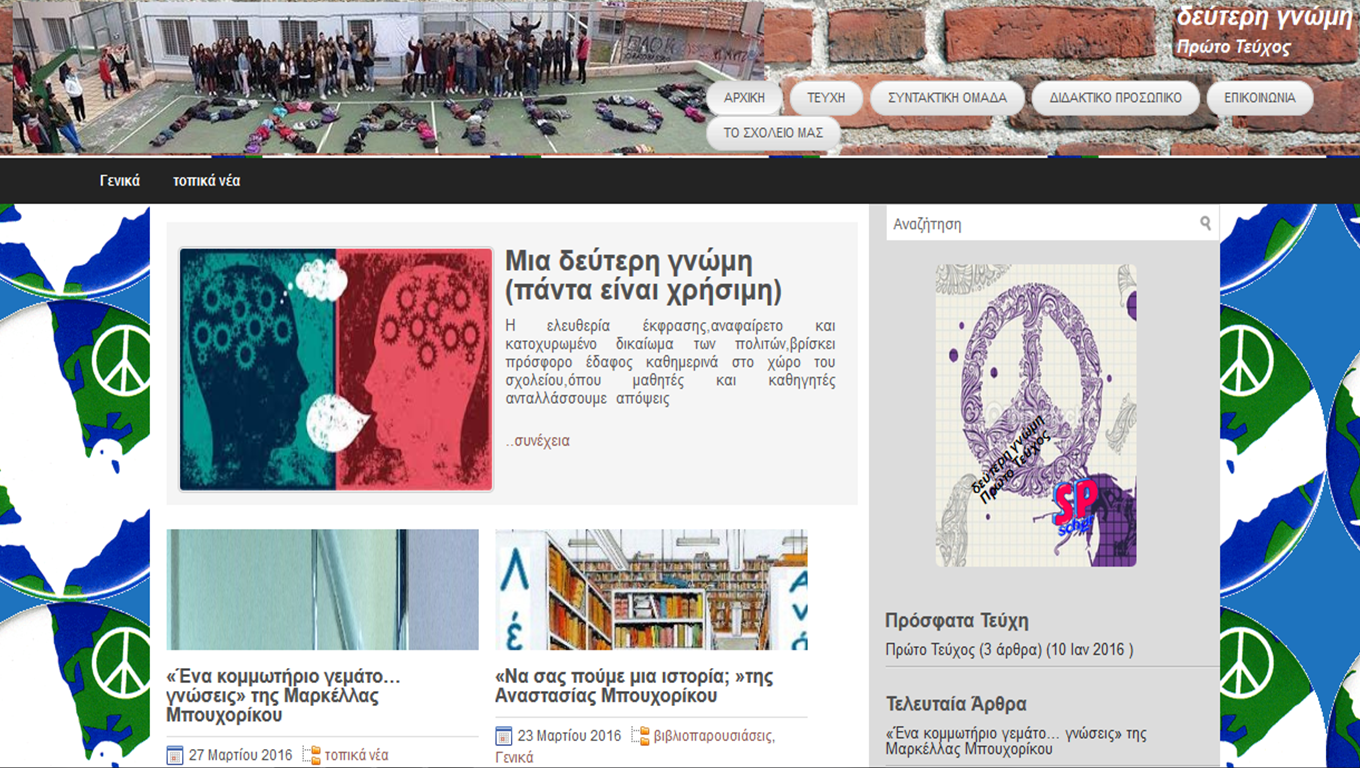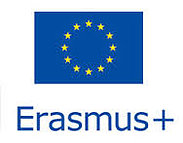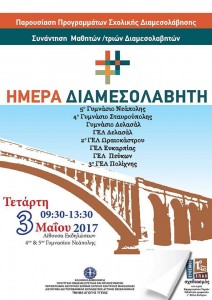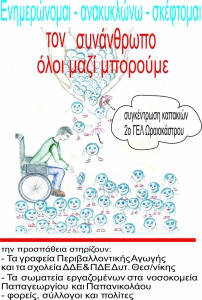 “Getting ready for an earthquake” students booklet during the eHAND Erasmus+ “Enceladus” meeting in Oreokastro – Greece,
“Getting ready for an earthquake” students booklet during the eHAND Erasmus+ “Enceladus” meeting in Oreokastro – Greece,
by Christos Alexakis, Georgios Chatzigeorgiou & Alexia Fragkouli

















BEFORE AN EARTHQUAKE
Be informed about the earthquake
To be informed about they earthquakes you can first of all listen to the radio or watch the news. You can also count the time which separates you from the last big earthquake and read articles and books about this topic in order to be well informed about all those things. In addition, you can just talk to the emergency staff and ask them to prepare you properly.
Make a plan, prepare for the earthquake, plan ahead
To make a plan we should Identify wich are the best to cover you. You can go under sturdy desks and tables and inside strong interior door frames. If there is no other cover, lay on the floor next to an interior wall and protect your head and neck. Stay away from anything heavy that isn’t bolted down. People should know ho w to signal for help if they are trapped. Make also sure that your family and you have a common place to gather after an earthquake.
Prepare an emergency kit
To begin with, in an emergency kit you need water, at least 2L per person per day. Food which does not go bas fast (e.g. canned food, cereal bars, beans). You also need a manuer can opener so as to open your can. Furthermore, you absolutely need a wind-up or battery-powered flashlight and a radio as well. Moreover, you have to carry a “first aid kit” (e.g. gauze pads, alcohol and survivor blankets). You should also save in the kit some money and important records.
Preparing emergency staff
Keep or get in contact with emergency staff (e.g. medical emergencies, earthquake alliance, fire department, rescue team) in order to get help when an earthquake occurs. It would be better to write the contacts in a piece of paper and store it along with a first aid kit in an accessible place.
Secure Heavy Items
Bolt or brace water heaters, gas appliances, bookcases, china cabinets and other tall furniture to wall studs, hang pictures and other objects away from the bed, where they’re less likely to fall on you during a night-time earthquake, anchor or brace overhead fixtures such as lights and ceiling fans and last but not least store heavy, breakable items on low shelves or in cabinets that lock shut, so there’s less chance of them falling on you.
WHAT TO DO DURING AN EARTHQUAKE
During an earthquake we must remind how to react during an earthquake thanks to the evacuation test we made the year (in school and outside). If you panic you might be out of control, stressed and not rational ; also it can lead to a general panic and people around you can make bad decisions, in that way you are putting your life and other’s people life in danger.
Inside
When an earthquake starts, don’t try to leave the building and find the nearest and safest place where there are no dangerous things that can fall down. Drop immediately down on your knees and cover your head and neck with one hand. If you are under a table, hold it with the second hand. If there is no shelter nearby, you have to crawl next to an interior wall (away from windows) and you shouldn’t use the elevators. If you find a shelter (hard surface, like desks, tables, chairs,..) take cover under this and hold on until the shaking stops
Outside
First of all, you have to be calm and protect yourself before helping other people.
You must stay away from the buildings because facades of them, columns with power lines or other places will collapse over you and you might be trapped. Don’t go into any buildings.
Also you should stay away from the coast because a tsunami might begin.
If you’re driving reduce the speed of your car and if possible stop it: park in the closest, safe place, away from building facades, airlifts, power cables and forests.
Don’t stay next to high voltage cables or anything that can collapse: bridge, edges, rooftops. The safer places when you’re outside are fields and all the open places.
If you’re in public transports don’t push other people out and pay attention from trains, tubes or coaches.
AFTER THE EARTHQUAKE
If you are indoors try to reach an opened and safe space
After an earthquake constructions and buildings may not be very stable and in order to protect yourself you should reach an open space where there is no possibility of trees, buildings and any other objects causing an injury.
Stay outdoors until you make sure the earthquake is over.
Be prepared for aftershocks, it’s normal
When an earthquake occurs there is often an aftershock too and sometimes it is more powerful than the first one. We must be prepared for it and keep calm. It is vital that our safety is ensured and everyone around us must be safe as well, and if they are not safe we should at least try to save them.
Check yourself and your surrounding for having any injuries.
During the earthquake there might have been plenty of damages in interior or exterior places; there’s a huge risk of people getting hurt. It’s really important to check your own self and the people surrounding you about any minor or serious injuries. If there are, you shall apply first aid techniques and if it’s a big emergency an ambulance should be called. By doing this you can save lives and also prevent something small of becoming serious.
This booklet has been made during the “Enceladus” Erasmus+, e-Hand project that occured in Oreokastro – Greece on 23-27 April 2018. Here, you can find instructions about how you should act in case of an earthquake. The booklet is consisted by three (3) parts. The first one is about the measures that have to be taken in order to make your survival easier. The second one refers to the proper way of acting while the earthquake strikes and the last part gives some useful advice about what you should do after the shake.





















